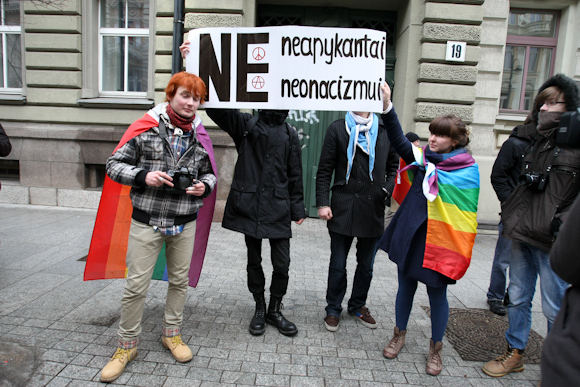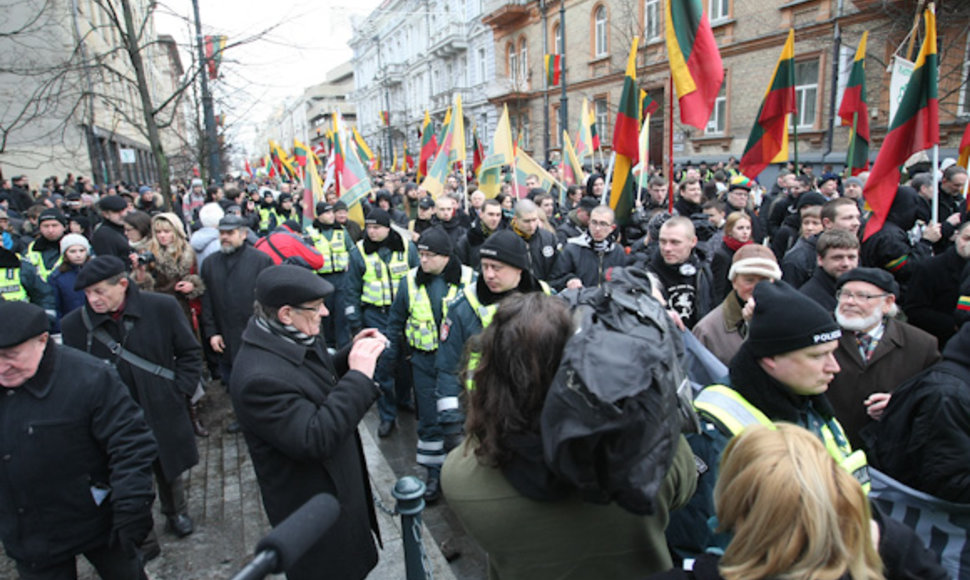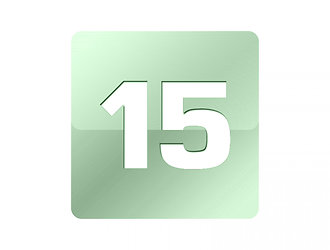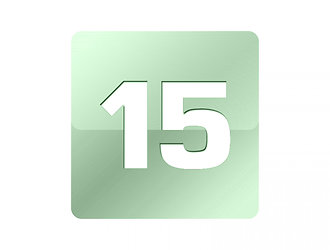Carrying national flags, the crowd chanted the Lithuanian name, sang patriotic and folk songs, but came under criticism of some human rights advocates for the repeated slogan "Lithuania for Lithuanians" and participation of skinheads.
One of the activists, Audrius Janušis, denied suspected links with neo-Nazis, saying the neo-Nazi label attributed to the rally was an insult to him.
"By chanting 'Lithuania for Lithuanians, Lithuanians for Lithuania' we mean that we should work for the benefit of Lithuania. Many people now emigrate; however, if the majority worked here the way they do abroad, they would be able to achieve a lot," Janušis, 23, told BNS.
He assured that the event was not aimed against national minorities but was targeted to achieve more respect for the Lithuanian culture and history.
"We're not saying that Lithuania is meant exclusively for Lithuanians. We have nothing against the national minorities that have been living in Lithuanian for thousands of years. However, when Latvia is holding a referendum on the second official language and there are discussions (in Lithuania) on street names, we simply want respect to our history and language," he added.
"Various symbols can be found here. Speaking about the swastikas - Baltic symbols cannot be equaled to fascist ones," Janušis noted.
Nevertheless, Henrikas Mickevičius, director of the Human Rights Monitoring Institute, said that, although this year's rally was more civilized, the organizers demonstrated their strife for a homogeneous society in the ethnic sense, which is unacceptable in the 21st century.
"Without doubt, the form this year is more civilized. No more atrocious slogans and flags. However, the content remains the same. These people see Lithuania as a 'clean' state in the ethnic sense, an authoritarian country, and this is their goal," Mickevičius told BNS.
"They want an ethnically 'clean' state where everyone who is not Lithuanian by 'blood' can be a historical guest, in the best case, while Lithuania belongs to ethnic Lithuanians. This is not acceptable in the 21st century," said the institute's director who observed the march in central Vilnius.
Escorted by a large police unit, the rally came across small groups of protesters, a few of whom were detained by the police.
At the Lukiškių Square, the participants were greeted by an Independence Act Signatory Romualdas Ozolas, National Union leader Gintaras Songaila and a Latvian MP. After singing the national anthem, the participants disbanded.
The rally featured a few dozen Lithuanian flags, as well as flags of Latvia, Estonia, Sweden, Russia and a few more countries, slogans, such as "Lithuania is for the Children of Lithuania, not the East or the West," "National State is a Value," "Proud to Be Lithuanian." Skinheads also had their symbols.
The 2008 rally that chanted anti-Semitic slogans drew massive criticism and media and police attention.
On March 11, Lithuania is celebrating 22 years since the 1990 declaration of Re-Establishment of Independence Act, which brought back independence after a half-century Soviet occupation.
According to a poll carried out by "Spinter tyrimai" agency, 44 percent of Lithuanians think that such events and "Lithuania for Lithuanians" slogans are a disgrace to the country.
 |
| Juliaus Kalinsko/„15 minučių“ nuotr./Protesters against the Nationalist march. The sign reads "NO to hate and neo-nazism" |




















